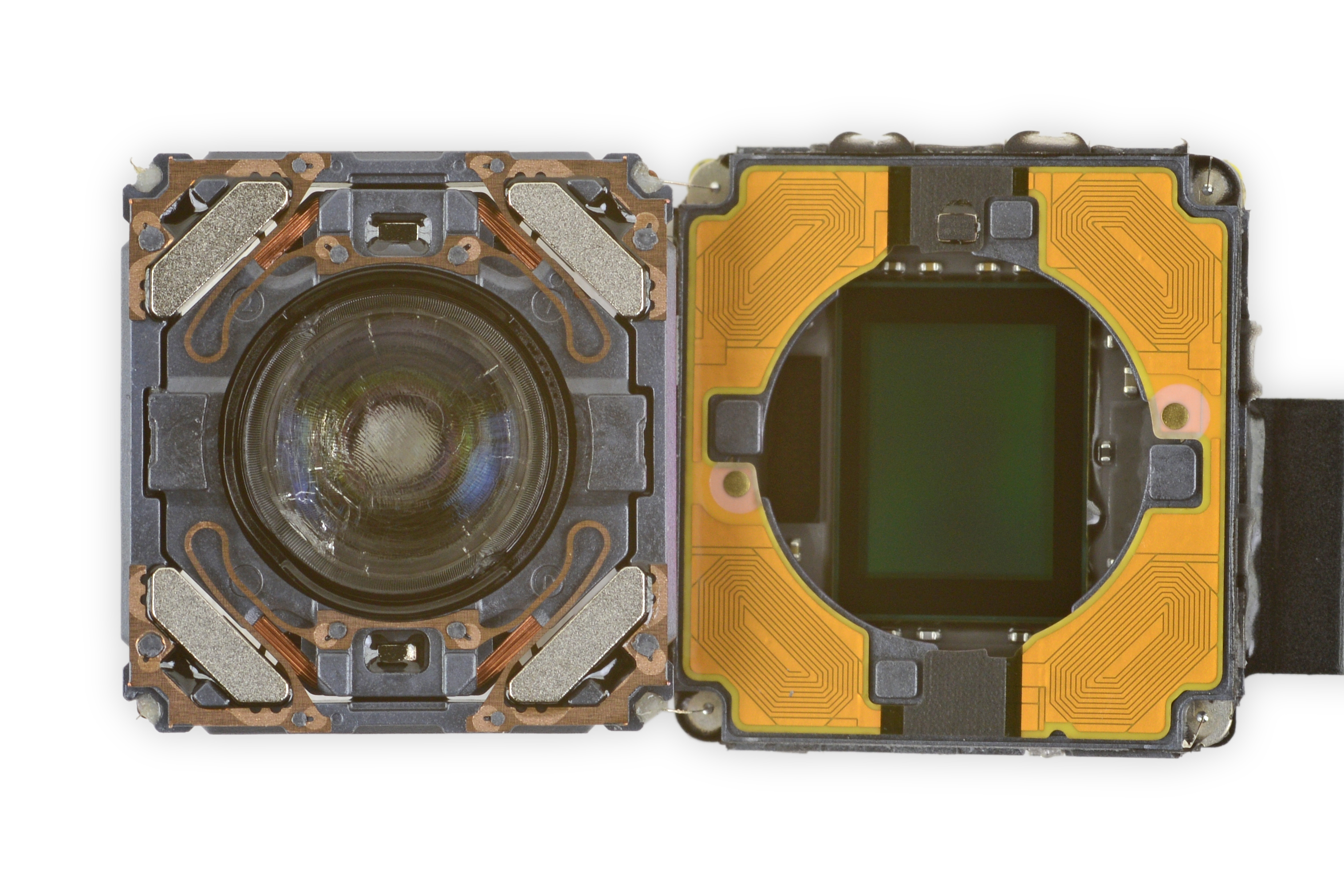
It’s not as bad as we thought, but it’s far from good. Apple shipped an iOS update that adds an “Important Camera Message” (read: warning) to an iPhone 12 repaired outside of Apple’s ecosystem. We tested and found that camera swapping between iPhone 12 models works, after buggy results at the phone’s launch. Yet Apple’s prominent warning suggests calamity.
When we first tore down the iPhone 12, swapping cameras between two brand-new units yielded disastrous, glitchy results (as first seen by Hugh Jeffreys). Combined with a leaked service document that indicated iPhone 12 cameras (and those in the other 12-series iPhones) would not work without the blessing of Apple’s proprietary repair software, we wondered if the iPhone 12 was the end of the repairable iPhone. Since then, we’ve found that cameras swapped between iPhone 12 models, with the just-released iOS update appear fully functional, with the warning present.
Apple’s warning wants you to believe that swapping cameras, regardless of whether the camera functions or not, is a huge mistake. The warning appears on your iPhone’s lock screen for four days, then embeds itself on the first page of your Settings, then is ever-present in the “About” section of Settings. The warning links to Apple’s support document on Genuine Apple Cameras, which claims that:
- Loose parts left behind by non-Apple-certified technicians could “damage the battery, cause overheating, or result in injury.”
- Non-genuine Apple cameras can lose focus, crash third-party apps, or freeze preview images (similar to what we first saw with the iPhone 12)
- Image quality can suffer
At first glance, this might seem in line with Apple’s warnings about non-genuine batteries or screens. But there is one significant difference here: there are few, if any, non-genuine iPhone cameras in the repair market. iFixit’s head of parts sales, Scott Head, and Daniel Demeter, quality control specialist, checked with our camera suppliers and other contacts and confirmed that third-party cameras essentially do not exist. This is, in large part, due to the ease with which, prior to this iOS update, you could harvest working cameras from discarded iPhones and use them as replacement parts.
This adds some context to Apple’s warning about “genuine” cameras. It’s a 99-percent certainty that the camera in your iPhone, if you have one, was made by Apple. The iPhone warning, and Apple’s support page, then, are actually about who replaced the camera in your iPhone. What triggers the warning is not a malfunction in the camera, but that the serial number in the camera doesn’t match that of the original phone camera—and that the person repairing didn’t have access to Apple’s System Configuration app to reset that pairing.
Not to mention: Apple did not garner any revenue from that unofficial, untracked repair.

There are arguments to be made in favor of some kind of notification when an iPhone contains non-original parts. Warranty fraud, where original parts are yanked from new phones, replaced with aftermarket parts, then returned to a vendor, is real. And a repair customer knowing what parts were used in a repair is valid service.
But that information could be kept in the About section of Settings. Those iPhone owners who aren’t particularly interested in the nuances of Apple’s supply chain may only see their phone warning them, repeatedly, in the same place they get text messages and package notifications, that their phone is “unable” to “verify” something, with a link to an even more fear-stoking site. It’s the kind of thing that’s hard for independent repair shops to explain to their customers. It’s also likely to lessen the value of iPhones that are damaged but have some working parts.
If Apple wants to tell customers that a camera has been replaced with a part they have not yet verified, then it’s only fair that they let people who are capable of fixing their iPhone buy their genuine parts, use their genuine manuals, and run their genuine software. In other words: give them the right to repair the device they purchased properly. Otherwise it might look like the thing that’s in focus is profits, not camera performance.






11 opmerkingen
Apple going against right to repair, as per usual.
Naso4265 - Antwoord
We’re using an iPhone 6 and an 8 and we’re not “upgrading,” thank you very much. In fact, I’m harvesting parts to build an iPhone 5 and if we ever have to buy a new phone, it will be a Light Phone
Thomas Daniel - Antwoord
Does this affect the iPhone 6s or just iPhone 12(Pro)?
Matteo - Antwoord
This is just for the iPhone 12 series
Ved Mo -
I used your tools (excellent) to replace the battery in my old iPhone G3, just to get the data off. I did everything flawlessly and when I went to turn the phone back on, I got the image that indicates that it needs to be plugged in. I could never get rid of that and unlock the phone. I only wanted to get my photos off or transfer them to another phone but was never able to. I took it to the Genius bar but they said I had to take it to a phone repair business. I’m sad because I still have the phone and haven’t been able to retrieve the photos from it.
Lenore - Antwoord